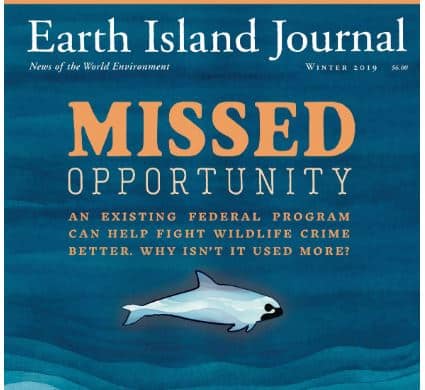From Terra Verde, a weekly public radio program on environmental news.
In The Earth Island Journal story, Schiffman describes Kohn’s argument that “the best way to fight wildlife crime is to tap informants within trafficking groups — the poachers or the middlemen who transport illegal wildlife parts to a final destination — to help bust crime rings preying on endangered species. Enlisting whistleblowers in the Gulf and across totoaba smuggling routes, he believes, could have helped law enforcement break up what he calls the “totoaba cartel.
The piece talks about the plight of the vaquita, a small, porpoise now endangered because of illegal fishing.
Kohn wonders why the US hadn’t used its powerful whistleblower laws that have helped bring down presidents, Big Tobacco, and the FBI, to this end. “‘There is now a growing consensus that incentivizing whistleblowers is a key to enforcing wildlife trafficking laws,” says Kohn, who adds that insider whistleblower information has historically been a key element in prosecutions conducted by the Department of Justice, the Internal Revenue Service, and the Securities and Exchange Commission.
The aim of a wildlife whistleblower program, he says, would be to make it more lucrative for potential poachers and traffickers to provide intelligence to law enforcement than to kill endangered animals. The illegal wildlife trade is a multibillion-dollar industry, and demand for everything from elephant ivory to pangolin scales has resulted in the destruction of hundreds of millions of animals around the globe. The US is believed to be the second largest consumer of illegal wildlife products in the world, and China the first.
